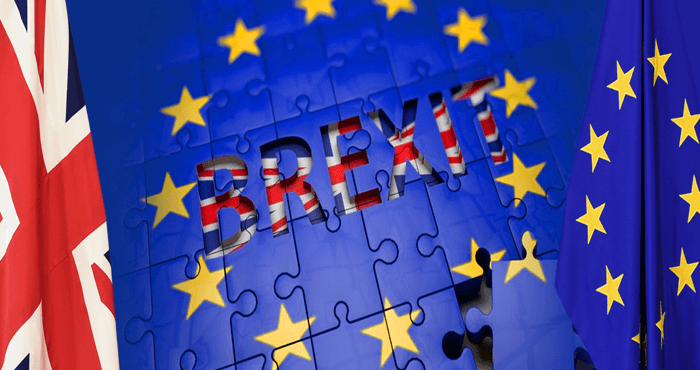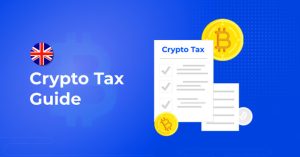An endless debate which cost us 3 PMs, 2 mass protests, 4 years, countless articles, tweets, and well-heated arguments even with the loved ones. As 31 January 2020 is showing its head around the corner, now is the time for citizens and businesses of the UK to pull up their socks and brace up for the Brexit. This article is to help you to build a generic picture with some vital aspects in dealing with an upcoming Brexit.
Brexit seems to be shrouded with the clouds of uncertainties, yet the Government has put an intensive effort upon the Brexit scenario to ensure that the businesses continue to operate as smoothly as possible along with infrastructure and public services and to minimise any disruption to the economy.
So to speak, there isn’t any stone left unturned to make sure that when the UK leaves Europe, the transition is to remain hassle-free and stable for citizens, consumers, and businesses.
The government has been continually publishing several technical notices to provide some more insight for the citizens and businesses for Brexit.
Despite all the effort, long seminars, informative events, in reality, how prepared are we apart from constantly having panic attacks over the possibility of an instant food shortage on the 1st of February? Let’s begin by answering a few questions:
- Do we know the implications of Brexit on our Business?
- Is our business ready to cope with the effects of Brexit?
- Are their sufficient funds in place to deal with extra costs, e.g. custom duty on goods imported from the EU, etc.?
- Are there any new licenses we might need to apply for before Brexit?
- If the business uses border then is the supply chain ready to handle potential disruption?
Businesses that are in close engagement with the EU border are the first ones to hit against the wall. The government has asked them to start getting ready for customs procedures post Brexit during the 11 month transition period.
EORI number
A passport number for trade goods, Brexit limits not only your movements but the movement of your goods as well.
What is an EORI? EORI (Economic Operators Registration and Identification number) is a reference number required to move goods in and out of the EU (including the UK). It is essential in identifying the ‘importer’ or ‘exporter’ for custom clearance procedures, paying its duties, and import VAT. Currently, EORI numbers are issued by customs or other designated authorities in the country of establishment of the economic operator.
It is important to note that principal feature of Brexit would be ending the free movement of goods resulting in applicable customs duties and import VAT becoming payable as well as amended/additional customs clearance procedures for goods moving between the UK and EU (though the Prime Minister being adamant on negotiating a free-trade deal with the European bloc by the end of the year.) As the UK is a member of the EU at present, goods move freely within the UK & the EU. So, no EORI number was required until now for businesses and individuals buying from or selling goods between the UK and the EU only (known as acquisitions and dispatches). The need for an EORI number will, therefore, be a new requirement for a mass of the UK businesses trading only with the EU Member States in the event of a No Deal Brexit. Let`s make it simpler:
Situation 1: Goods imported into the UK from anywhere (except the EU):
UK EORI will be required.
Situation 2: Goods exported out of the UK to anywhere (except the EU):
UK EORI will be required.
Situation 3: Goods imported into the UK from the EU:
Since goods are imported into the UK, hence UK EORI will be required. Further, as goods are exported from the EU, so EU EORI will be required.
Situation 4: Goods exported from the UK to the EU
Since goods are exported from the UK, hence UK EORI will be required. Further, as goods are imported into the EU, so the EU EORI will be required.
Those businesses that fall in Situation 1 & 2 shall require UK EORI beginning with GB. Practically, an application for a UK EORI number takes about 5-10 minutes only to do online (with businesses or individuals being allocated an EORI number straight away or within 5 working days if HMRC needs to make checks). Click here to apply for UK EORI online.
Those businesses which fall in Situation 3 & 4 shall require both UK EORI & EU EORI. Businesses and individuals who currently have an EU EORI number will need to register for a UK EORI number post Brexit. For the time being, it is not possible to have both a UK EORI and EU EORI number before Brexit as the UK is still an EU Member State and multiple EORI numbers in the EU are prohibited. Therefore, taking multiple EORI after Brexit is likely to result in delays and additional costs.
Imports from the EU post Brexit
The Government has listed a few additional steps beside the requirement of UK EORI number, as follows:
- To Decide who will make the customs declaration (It could be self-made or a customs agent can be hired to do so. To know what services are provided by customs agents click here).
- To apply for ‘Transitional simplified procedures’ and other customs procedures that could be used. However, registration and use of Transitional Simplified Procedures (TSP) for imports from the EU are currently suspended. There is no need to use TSP between February and December 2020. If you applied for this service, the HMRC requires you to keep your paperwork safe.
- To find out what rate of import duty and excise duty (on alcohol, tobacco, or biofuels) is applicable.
- If the business imports regularly then a duty deferment account could be set up to enable making one payment of customs duties a month instead of paying for individual shipments.
- To figure out if one might need to change the labeling on the packaging for your goods, or apply for licenses or certificates, etc.
Exports to the EU post Brexit
The Government has listed a few additional steps beside the requirement of UK EORI number, as follows:
- To decide who will make the customs declaration. (It could be self-made or a customs agent can be hired for the same. To know what services are provided by customs agents click here).
- To choose if you want to export your goods using the Common Transit Convention (CTC).
- To find out the rate of taxes and duties applicable to the goods required to be paid by the importer as import duty will be payable by EU member on goods imported by it from the UK.
- To check out if there’s a requirement for applying for export license etc.
- Implications of changes in VAT. E.g. VAT refund claims, VAT payment for selling digital services to EU customers.
- To select who will transport goods outside the UK.
VAT refund claims post-Brexit
You wanted to see a real immediate effect of Brexit, then this one is for you. After 5 pm on 31 January 2020, you won’t be able to use HMRC’s VAT online services to claim a VAT refund from an EU member state. In the wake of Brexit, to claim VAT refunds from EU members, businesses need to follow the refund process for the respective EU member state where they wish to claim a refund.
Are you ready??
Now that Brexit has found its way in the real world, let`s prepare ourselves to tackle whatever it is supposed to bring along. Let us ensure that the transition is smooth and coping with it is easy. And this is only possible if we keep ourselves aware of the issues affected by Brexit and keep ourselves ready as per the guidelines provided by the government from time to time. Stay tuned for more updates relating to Brexit and ensure a smooth transition.












